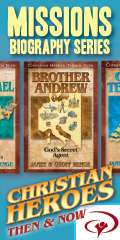As homeschoolers, our main goal should be to get our kids ready for real life. That is the goal of education of any sort: Preparing students to succeed in life. Our definitions of success may vary, and that is something that some of us may still need to determine.
I define success as: having a vibrant personal relationship with God; having good relationships within your family and with others; basically doing what God put you here to do – fulfilling God’s purpose and calling for your life; and being able to provide for yourself and your family, preferably through doing something that you enjoy.
Your definition may be different, but these basic ideals are the foundation for the way I have chosen to build my homeschool and family life. It’s a good idea for us to think through these issues and decide what is most important to us and how we can aim toward these priorities as we plan and live out our homeschool days and daily lives in general.
Relationship with God
To me, this is the most important goal for keeping my children at home to learn and grow and develop. I know that, ultimately, they will choose whether to follow God or not, but I intend to give them every opportunity and incentive to get to know God for themselves and develop a close, intimate relationship with Him.
There are some things we can do as parents to lead our children to Jesus. One is to consecrate our children and turn their education and training and discipline over to His leadership and control. We need to realize that they are God’s children and He has given us the privilege of loving them and guiding them through their lives, according to His will and direction for them.
As such, we should pray about everything that concerns them. He is their Father, and some day He will be the One they obey and get direction and instruction from, with just friendly advice from us. We should teach them the Word of God, speak His words of life over them, and teach them the two Greatest Commandments: to love God and love our neighbors. We should teach them to listen for what God is saying to them. We should model for them how to put God first in all things. We should pray together as a family. And we should ask our kids what God is saying to them and share with them what He is speaking to us about. We can teach them how to pray effectively.
We should teach them the Bible and biblical principles that we need to live a godly life. Encourage them to pray on their own and develop their own relationship with God. Teach and model for them praying for their own needs and needs of others.
And teach them to praise and worship God. Show them that it is possible to get to know God.
A book I’m reading right now is helping our older children get closer to God. It is called “Translating God” and is written by Shawn Bolz.
Relationship skills should be an important part of our “curriculum”.
Teach your children to:
Do everything out of love. Protect the connection between yourself and the other person. Choose to walk in love toward that person no matter what. A great tip I learned from Danny Silk is: “Without the foundation of unconditional love and acceptance in a relationship, we simply cannot be free to be ourselves. It’s only when we remove the option of distance and disconnection from our relationships that we create a safe space to be ourselves. We cast out fear, inviting each other to bring our best selves forward.” This is from his book, “Keep Your Love On”.
Build good relationships. A very important skill that we all need to have in life, for the sake of our family life, our job success, our level of contentment in life and many of our interactions with others is our ability to build good relationships.
Always forgive. It never does any good to hold things against another person. If you hold unforgiveness, you keep thinking about it, you develop negative feelings and bitterness, you are miserable, and the person who offended you is not affected or hurt at all! It is worthless and futile to think that you are accomplishing anything by holding unforgiveness against someone. So don’t do it. Teach this to your children.
Repent quickly. Humble yourself to admit when you have done something wrong. Tell the person you have wronged that you are sorry. Resolve not to do it again. And make it a point to try really hard to restrain yourself from ever doing it again.
Teach them to communicate. Clarity is essential. Cloudy, unclear communication or lack of communication leads to lots of misunderstandings and lots of problems. It is my job to communicate clearly to you. It is not the job of the listener to try to figure out what I’m thinking or feeling or saying. And the goal of communication is to make sure that my listener understands what I’m saying or feeling, not to convince or force them to see things my way. In everything we do, we should convey love – not control, manipulation or trying to get our own needs met. We need to do whatever it takes to protect the connection between ourselves and those that we live with and encounter along life’s path.
Establish good boundaries. This is something that I think many of us struggle with. The book, Keep Your Love On, specifically chapter 9, spells out so clearly how we should set good boundaries. In how we spend our time and how we communicate, it all comes down to taking care of ourselves. If we don’t take care of ourselves we can’t take good care of anyone else. When experiencing conflict with another person, the way to keep it from deteriorating into something toxic is to say to them, “I’ll be glad to have this conversation as long as it stays respectful.” And then make sure that you follow through with it. If the person you have conflict with becomes abusive in any way, in language or actions, walk away from him.
I read “Keep Your Love On” by Danny Silk, and it helped me so much in many of my relationships and my satisfaction with the way I deal with other people, that I can’t recommend it highly enough. I think we should read it aloud to our children when they get old enough to really understand and process these concepts. And all through their training years, we should model and talk about the principles laid out in this book.
Have a Mindset of “We are Building a Strong Family”
In all of your plans and activities, one of the primary goals should be to build a strong family. If our children have a strong sense of belonging and security, they are far less likely to go looking for love, affection or comfort from the wrong sources like immature friends who are seeking a family and have no foundation or anchor of morality.
One way to do this is to develop a family mission statement. I have written about this Family Mission Statement.
We should do things that make good memories with our children. And we should do things within our family in such a way that we build a strong family identity – like this is what the Douglas family does – and a family culture based on good practices like reading aloud every day. Or something that your family enjoys doing together that encourages interaction and communication with each other.
Family vacations and trips would be good, too, if you can afford such things, as long as good relationship skills are practiced during these times together.
Getting Down to the Nitty Gritty
And now I invite you to think with me about basic skills. Basic skills are the building blocks of all of the learning that happens later on. We must teach our children how to read and write and do arithmetic. Many of these skills can be taught and reinforced through workbooks, real life activities, games, and for those who have learning differences, we may have to use specialized tools and techniques. Charlotte Mason methods of narration, dictation, and copywork are some of my favorite ways to teach reading and writing. And real life math using cooking and grocery shopping give meaning to the numbers and concepts we are trying to teach our kids. Many children naturally learn many skills because of things they want to do themselves, such as make a list of things they want for Christmas or a letter they want to write to a friend or relative, or a video game they want to play that involves reading or some kind of math. So real life can help them learn basic skills, and many times that kind of learning sticks better than what they learn from a workbook. And has direct application to real life occupations they will choose later on.
After our children have learned the basic skills until they are automatic (mastered), we can let them move on to bigger and better things like science, history, geography, government, finances, economics, world affairs, current events, advanced math, multiple sciences, worldviews, psychology, philosophy, arts, and more. From this point on, I think we should let them help decide what they want to learn more about. I believe that we should pray with them about what their God-given gifts, talents and interests are. We should choose books and subjects with an eye toward preparing them for the future that God has for them. And I think it’s important to take into account their learning styles and the ways that they are smart.
All along the way, we should spread a feast for them of living books, paintings and art, music, and exposure to great artists, composers, and authors. We feed their souls by letting them feed on great ideas and by letting them interact mind to mind with great thinkers and authors throughout the centuries by reading the Classics with them.
We should also let them specialize in subjects that they have more interest in. We should encourage them to dig deeper into subjects that excite and inspire them. We should provide resources for them to study and activities that we can afford to provide for them.
There is more I would like to cover, but this post has gotten longer than I intended when I started writing. I will continue to write about this topic in a future post. Future being the operative word here. Our kids’ future is important, and we need to keep it in mind as we educate and prepare them for what lies ahead. Let’s make sure we don’t get bogged down by details of how old they are when they learn to read or whether they do things according to our plans or expectations or in a way that is convenient to us, and really take care of the biggest needs of our children. The needs of their hearts and skills they need to do life well.









 "Oh that God would give every mother a vision of the glory and splendor of the work that is given to her when a babe is placed in her bosom to be nursed and trained! Could she have but one glimpse in to the future of that life as it reaches on into eternity; could she look into its soul to see its possibilities; could she be made to understand her own personal responsibility for the training of this child, for the development of its life, and for its destiny,--she would see that in all God's world there is no other work so noble and so worthy of her best powers, and she would commit to no other's hands the sacred and holy trust given to her." -JR Miller
"Oh that God would give every mother a vision of the glory and splendor of the work that is given to her when a babe is placed in her bosom to be nursed and trained! Could she have but one glimpse in to the future of that life as it reaches on into eternity; could she look into its soul to see its possibilities; could she be made to understand her own personal responsibility for the training of this child, for the development of its life, and for its destiny,--she would see that in all God's world there is no other work so noble and so worthy of her best powers, and she would commit to no other's hands the sacred and holy trust given to her." -JR Miller






